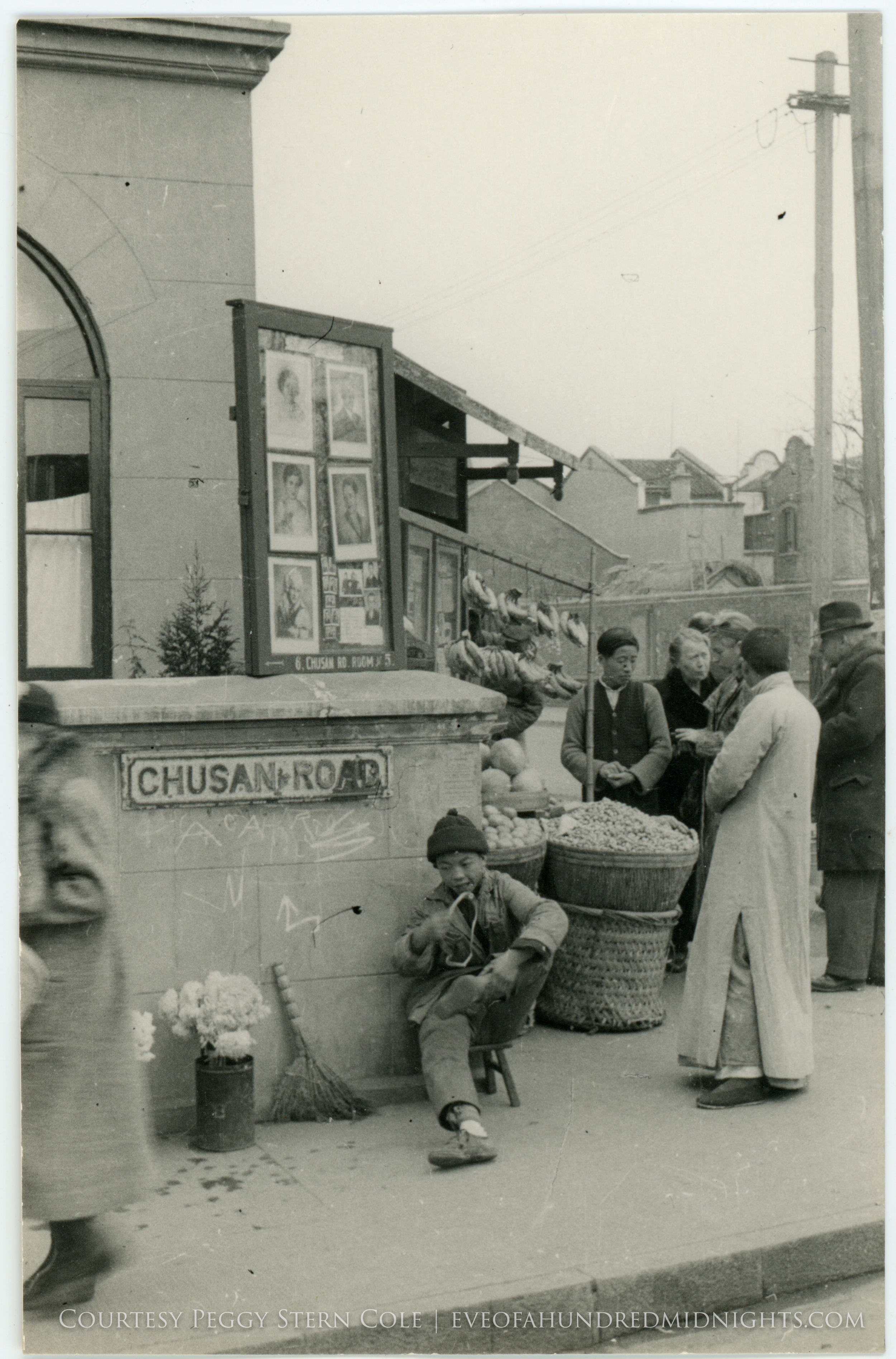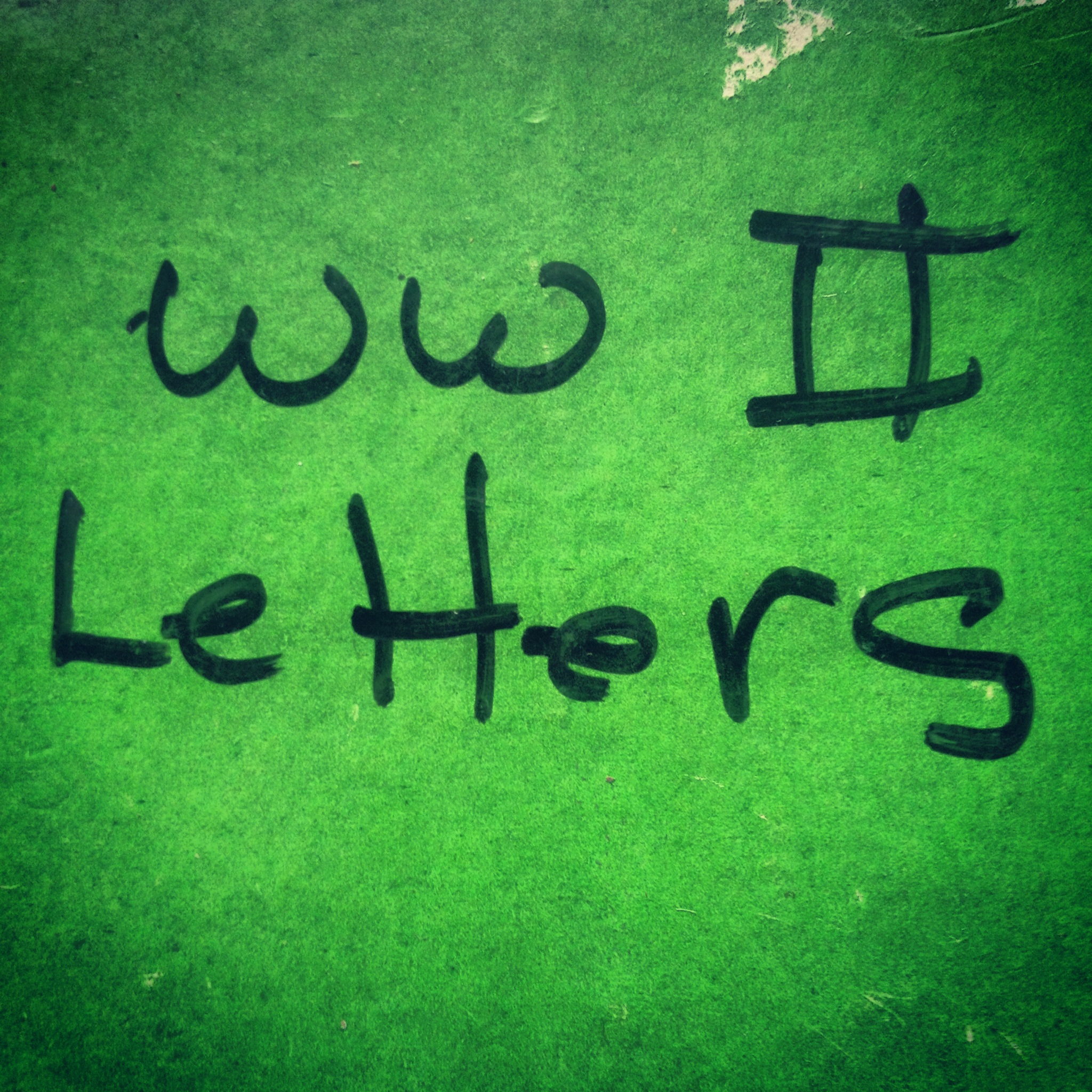
Shanghai Takes it On the Chin
“I hate to see the rich kids in the cabarets, I hate to see the refugees, I hate to see the lousy foreigners in Packards and minks. Lots of money is being made now on the market and in business—but the Chinese peasant is taking it on the proverbial chin.”

Bombing Season
Three quarters of a century ago, today, at the height of “bombing season,” World War II correspondent Melville Jacoby took a brief break from his radio broadcasts for NBC, his writing and photography for Time and Life magazines to write to his mother and stepfather about life in wartime Chungking, or Chongqing, then the capital of China.

The Year that Changed Mel...And China
Melville Jacoby's interest in China can be traced back to 1936. That year and into 1937, during what would have been Mel's junior year at Stanford University, he went to China as an exchange student. There, he studied in the southern port city of Canton (that was the English transliteration of the time; it is now commonly transliterated as Guangzhou). He joined other American and Chinese students on the campus of Lingnan University (which still exists in another form in Hong Kong, while its original campus remains as part of Sun Yat-sen University in Guangzhou).

Come for the Book Cover and Release Date, Stay for the Food Poisoning
So, I could tell you a story about food poisoning and crazy rides across the Philippines, but I suspect you want to know what the cover of my book looks like, or what its final title and release date will be, or how you can pre-order it, or read about some fascinating characters from Portland who played both heroic and sinister roles in World War II.

When We Recognize Yesterday In Today
"Chaos has made wanderers out of 15,000,000 people. These people, not only Jews, torn from their homes will soon command the world's attention. For unless an intelligent situation is found, the dire effects of mass migrations will be felt over and over again during the coming centuries. It is hardly up to the refugees themselves. They are so completely befuddled that only happenstance guides their course."

Accounting for Modalities
Given that many people in the United States are thinking about accounting today, I thought I'd share some of the raw numbers from my recent trip to China and the Philippines, but rather than detail how much money I spent (speaking of which, you are welcome to complicate my 2015 taxes by donating here), I thought I'd share the following summary of the many journeys within a journey I took while traveling through China, the Philippines, Hong Kong, Macau, the Philippines, Canada and the United States:
Feet shredded while walking miles through eleven cities, many small villages, one former military stronghold and atop, along and around ruined portions of a gigantic wall: 2
Subway systems used more frequently than can be tallied: 6
Personal cars ridden with a buddhist who would later host an elaborate tea ceremony, an atheist tour guide raised in a cave, and two precocious children: 1
Bridges crossed at which the largest conflict in the history of the world began: 1
Last minute rickshaw rides organized by a guide squeezing in one more sightseeing visit before a thirty-hour train ride: 1
A thirty-hour train ride between China's current capital and the city that served as its capital during World War II: 1

Chongqing Aflame
Beyond the fireworks, you hear Chongqing in honking horns, sizzling streetside frying pans and screams of Sichuanese from every direction. At night, before your eyes, Chongqing's bright lights dance up skyscrapers, the same towers that shoot from fields of strewn rubble and half-buried buildings, far past the smog-smudged apartment blocks they're replacing. Chongqing's scent wafts from grilling meats and fetid alleys.
Hitting the (Silk) Road
Chongqing was hot. It was loud. It was squalid. It was crowded.
It was home. Chongqing was home.
"You get to like it,” Mel wrote.
Will I like it? Five weeks from today I will wake to my first morning in Beijing on the first leg of a trip through China and the Philippines. In the weeks to follow I hope to visit Guangzhou and Manila, to see Shanghai and Cebu, to ride trains through Guangxi, and to sail through the Visayas. Most importantly, perhaps, I hope to climb from the Yangtze through the exploding megalopolis of Chongqing and, I hope, to find this place Mel and Annalee and so many others once called home.
The Last Night
A new year looms. As it has since I began unfurling this story, New Year's Eve carries a special meaning. As much as I'm thinking about Mel and Annalee, I'm also thinking about the people who left similar impressions upon them, and upon whom they left their own impressions. They are on my mind as I consider how, 73 years ago tonight, Mel and Annalee made the heartbreaking decision to leave their friends at a Manila hotel, run to the city's burning docks and leap aboard the last boat sailing into a dark, mine-strewn harbor before the Japanese entered the Philippines' capital. It was not an easy decision; the people they left behind were their colleagues, their friends, their fellow "soldiers of the press." They were, as I've addressed before, their tribe.

Happy Holidays From Mel
Here's how Melville Jacoby celebrated the holidays when he was in China as an exchange student in 1936-37: with custom-made holiday cards from Canton, where he studied at Lingnan University.
Search Posts
Archived Posts
- March 2024 1
- October 2023 1
- October 2022 2
- December 2017 1
- April 2017 1
- February 2017 1
- January 2017 1
- November 2016 2
- August 2016 2
- July 2016 2
- December 2015 1
- November 2015 2
- September 2015 3
- April 2015 1
- March 2015 1
- February 2015 1
- January 2015 4
- August 2014 1
- May 2014 1
- April 2014 4
- March 2014 6
- December 2013 1
- November 2013 1
- August 2013 3
- May 2013 2
- April 2013 1
- December 2012 3
- November 2012 2
- October 2012 2
- September 2012 3
- August 2012 6
- July 2012 4
- June 2012 1
- May 2012 6
- April 2012 2
- March 2012 3
- January 2012 2
- September 2011 2
- August 2011 2
- July 2011 1
- May 2011 9
- April 2011 2
- March 2011 1
- January 2011 2
- November 2010 1
- October 2010 1
- August 2010 3
- July 2010 1
- June 2010 1
- May 2010 12
- April 2010 2
- March 2010 1
- January 2010 1
- December 2009 1
- November 2009 4
- October 2009 2
- September 2009 2
- August 2009 1
- July 2009 1
- June 2009 4
- May 2009 1
- March 2009 5
- February 2009 4